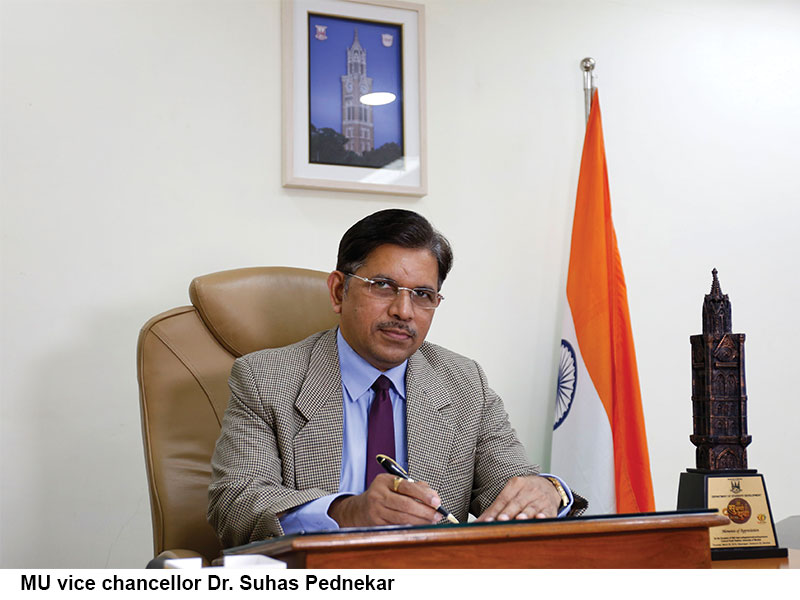
Three years after its accreditation status expired in April 2017, Maharashtra’s oldest varsity, University of Mumbai (estb.1857) has applied for National Assessment and Accreditation Council (NAAC) ranking.
The university, funded by the state government, which has 810 affiliated colleges statewide with an aggregate enrolment of 700,000 students, was awarded grade ‘A’ status for the period 2012-17. However, soon after the expiry of its accreditation, it suffered a setback when a switch from the manual to online assessment system ran awry, resulting in prolonged delay in announcing collegiate exam results in 2017. Self-evidently, that would have been a wrong time to apply for reaccreditation as it would have endangered its ‘A’ grade rating. Therefore, the 162-year-old varsity’s management prudently resolved to clean up its act before reapplying for accreditation.
This precaution was well-advised because Mumbai University (MU) has been plagued with chronic delays in declaring exam results. The delay went from bad to worse in 2017 when former vice chancellor Sanjay Deshmukh decreed replacement of the manual assessment of students’ exam papers with online evaluation. Since the firman was issued without adequate preparation, technological disruptions delayed declaration of final exam results in 447 of the university’s undergrad and postgraduate courses for an unprecedented three months. This delay hit 425,000 students who wrote their exams in March-May 2017, with many aspirants seeking admission into foreign universities losing an academic year.
To tide over the crisis, the vintage MU had to suffer the humiliation of roping in technical experts and faculty from younger varsities including Nagpur University, Savitribai Phule University (Pune) and the Babasaheb Ambedkar Marathwada University, Aurangabad to complete the assessments process. Heads had to roll for this contretemps which prompted a huge students’ outcry. Vice chancellor Sanjay Deshmukh was fired in October 2017. The incumbent vice chancellor Dr. Suhas Pednekar was appointed in June 2018.
As on September 2019, only a small fraction of the country’s 39,000 colleges and 993 universities are certified by NAAC (estb.1994) a subsidiary of the Delhi-based University Grants Commission (UGC). Without NAAC certification — the certification process is elaborate and expensive — higher education institutions cannot receive UGC or RUSA (Rashtriya Uchchatar Shiksha Abhiyan) infrastructure development grants or offer distance learning programmes.
According to MU sources, the varsity lost a Rs.100-crore academic development grant under RUSA despite RUSA’s state development council recommending it, because of lack of NAAC certification during the past three years.
With application work for NAAC accreditation, which inter alia requires preparation of a self-study report (not more than 200 pages), is in full swing, the MU administration is pitching for grade ‘A+’ certification — an improvement of its previous ‘A’ grade — which will make it eligible for enhanced funding under RUSA. With NAAC gradation processes also mandating inspection by a peer task force, the MU administration has been holding meetings to prepare department reports and appraise all faculty members.
“It was unfortunate that MU was unable to reapply for NAAC certification in 2017 which has already cost us the Rs.100-crore funding under RUSA. We are hopeful of getting this sum once our accreditation process is completed. We also have several other funding options from the ICSSR, AICTE, UGC etc, open to us where NAAC accreditation isn’t mandatory. This time, we have written a detailed data validation and verification report and prepared our campus for inspection by the NAAC committee. There has been a general improvement in the academic environment of the university with greater faculty participation in conferences, department initiatives and higher output of research papers. Therefore, we are confident of being awarded A+ certification from NAAC,” says pro vice chancellor Ravindra Kulkarni.
About time too, for a university established in 1857.
Dipta Joshi (Mumbai)